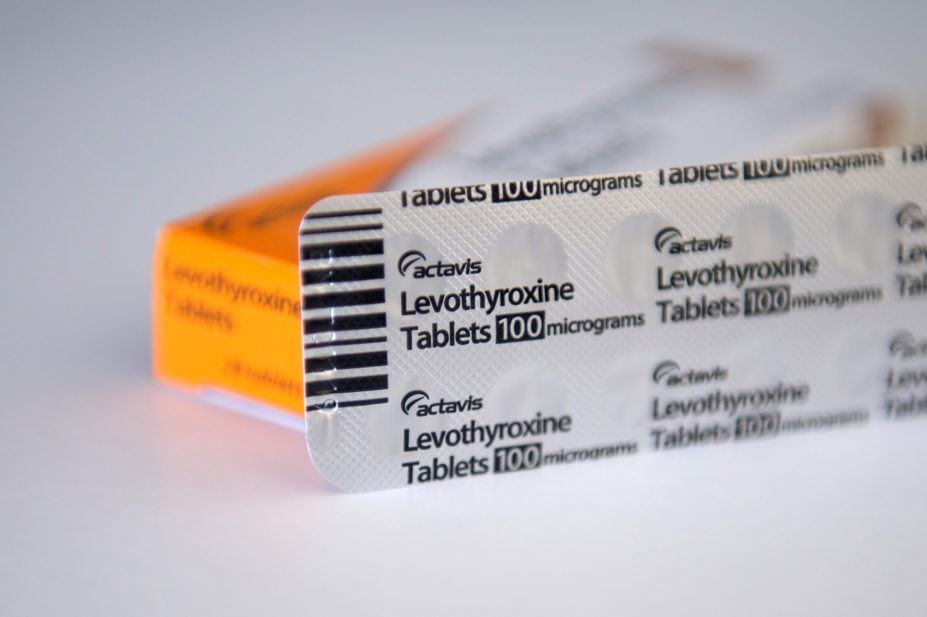
Alamy Stock Photo
Patients with hypothyroidism, who report persistent symptoms after switching between different tablet formulations of the thyroid hormone levothyroxine, should be considered for a thyroid function test, the Medicines and Healthcare products Regulatory Agency (MHRA) has said.
In guidance issued on 19 May 2021, the MHRA said it had received 335 Yellow Card reports between 1 January 2015 and 31 December 2019 relating to levothyroxine, the majority of which had been received from patients rather than healthcare professionals.
It added that the reports had used one or more of the terms ‘product substitution issue’, ‘condition aggravated’ or ‘drug ineffective’.
As a result, the MHRA conducted a review of the available data and sought advice from its committee, the Commission on Human Medicines (CHM), as to whether any regulatory action was needed to minimise the risk of adverse events on switching between different levothyroxine products.
The CHM consequently recommended that levothyroxine continue to be prescribed generically for most patients, but that if a patient reports symptoms after the switch, a thyroid function test should be considered.
For patients who are persistently symptomatic after switching levothyroxine products, the prescriber should consider consistently prescribing a specific levothyroxine product known to be well tolerated by the patient.
And if symptoms persist further, an oral solution formulation should be considered.
According to an analysis by The Pharmaceutical Journal, the amount of levothyroxine dispensed in England increased by more than 60% in the decade between 2008 and 2019.
In the UK, prescribing of levothyroxine is usually generic, with no named product specified on the prescription.
Patients may therefore be given different products, according to what is available at their local pharmacies, with the prescriber generally unaware of the specific product that the patient is taking at any particular time.
The Pharmaceutical Services Negotiating Committee (PSNC) highlighted that, following the advice, community pharmacy teams may expect to receive requests from patients and/or prescribers for a specific brand name or make of levothyroxine to be supplied.
“If a specific levothyroxine product known to be well tolerated by the patient is required, prescribers must ensure the correct product description is selected using their prescribing systems,” the PSNC said.
“Some pharmacy contractors have been left out of pocket because prescribers have free-typed product information (such as brand name or supplier) into the dosage instructions field or notes section of electronic prescriptions, and the pharmacy has not been reimbursed for supplying in accordance with the prescriber’s instructions.”
If levothyroxine is prescribed generically, it is reimbursed according to the prices published in Part VIII of the applicable Drug Tariff. However, a prescription requesting levothyroxine by a specific brand name or supplier name is reimbursed according to the NHS list price published in the NHS dictionary of medicines and devices, the PSNC added.
READ MORE: ‘It’s a murky business’: the row over levothyroxine use in ‘subclinical’ disease


